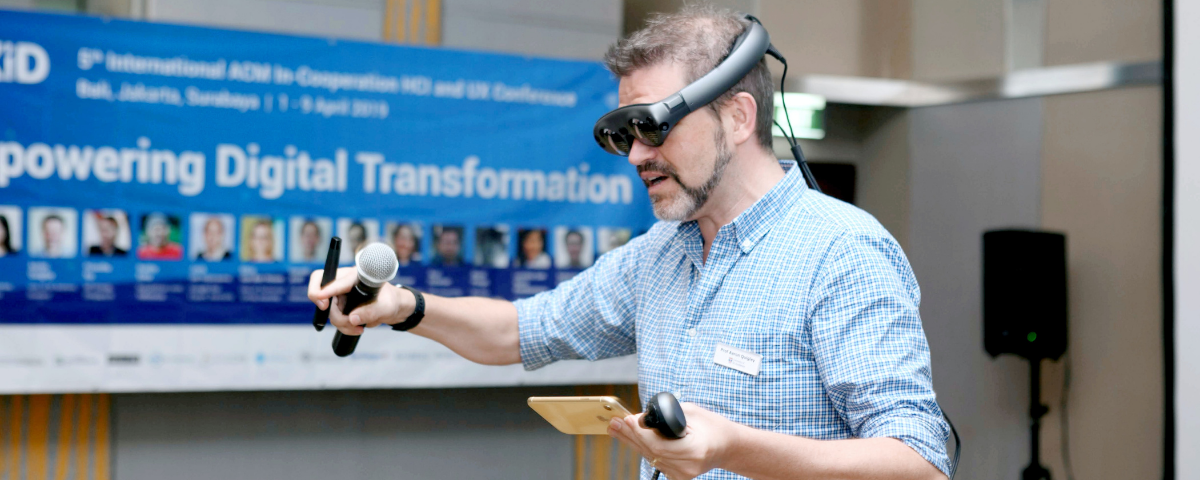The events sector has its own language. It is probably because of the technicalities, the contracting and the large array of suppliers that talk in their own code. It is little wonder then that an event planner faces a huge interpretation challenge every time they go to a meeting or run an event. They have to pull everything together to deliver success.
And events folk like to shorten everything. And I mean everything, including names, for example, Meeting Professionals International is immediately referred to as MPI.
To add to the alphabet spaghetti of the sector, there is a new term to get to grips with. It is the Virtual Experience Economy.
But what is it? And that is the killer question. A bigger killer question is: what does the Virtual Experience Economy or VEE (if you must) mean for the events sector?
Three Simple Words
It seems straightforward. After all, there are only three descriptive words to consider.
If you agree that we understand the individual words we should be well on our way to understanding what the term means. The questions are addressed to us as ‘we’ because collectively we need to understand together to move forward. Let’s take a look.
Do we understand what we mean by Virtual?
Do we understand what we mean by Experience?
Do we understand what we mean by Economy?
Simple then, we combine the understanding of these three words. However, this is where things can come to a screeching stop. It is the combination of these words that cause the issue.
A Challenging Definition
Ask someone about a virtual experience and they are likely to think you are talking about virtual reality. And we can live with that. But where does ‘Economy’ fit into the VEE definition?
I do not have an easy, or indeed any answer. And believe me, I have looked everywhere. I have read articles and watched videos and I am not convinced that VEE is squared away.
In the IBTM World’s Trends Watch Report 2021 the Virtual Experience Economy is defined as “the next iteration of the Experience Economy. It is poised to drive business growth through virtual events. It seeks to accelerate the merging of digital and live events in the years to come, with the possibility of making permanent changes on consumer preferences even after the pandemic.”
That is their finding. What do you think? Does it go far enough? Did you have a different interpretation?
And do not worry if you are still getting to grips with what the VEE could be. I do not believe defining it is as important as using what it could be to spur on the development of the sector. Spending valuable time on definitions is not the answer. Just look at the different ways that event professionals have of defining a hybrid event. It’s likely that hybrid events and what they are will be debated forever more.
Collaboration leads to the Art of Possibility
Once we understand that no definition will ever be good enough to satisfy everyone, we can get on with the business of working out just what can be done to help our event attendees and other stakeholders.
Surely the Virtual Experience Economy is not just about using technology, it is about ensuring that technology is adding real value. It must be more than just gimmicks and tricks. Isn’t it about technology that has a defined purpose that when deployed increases the convenience value to the individual?
Rather than just listing technology options, we can look at what we have now and what we can do with it.
We should now be at the point at which we understand the tech options available and know when to integrate it. We should after a two-year gap (forced by Covid-19) of in-person events have been reflecting on what type of event(s) is going to be sought after by attendees and sponsors. And we should be doing this against the backdrop of growing global concern over carbon emissions.
And the good news is that in the events sector we have many talented individuals and organisations that can help figure this out. But it has to be done by pulling together. If you are a tech company that does not work with event professionals, you are not going to progress much.
Let’s not get upset over definitions but move to transforming the way events are consumed and used by individuals and organisations. All the tools needed are at our disposal. It is time to embrace the framework of the VEE and just see what is possible.
We know we cannot go back to pre-Covid events, it’s time to keep moving forward. Collaboration leading to measures that then become a catalyst for change is surely what the Virtual Experience Economy is asking for.
You may also be interested in…

